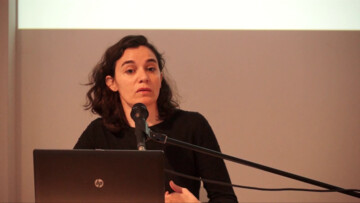The term marks a change in the way we deal with non-western epistemologies in our Museums and Universities. It challenges the postmodern umbrella in which a multitude of themes were framed by the same structure, not having the capacity of affecting it. This would means to renounce to one methodology and learn on to carry out a dialogue with different methodologies, and other ways of understanding the world respecting each epistemic sovereignty. This would test western sciences resilience to renounce to its fantasies of control in which knowing is a way of possessing and restarts approachs to know, dealing with the unknown, the opaque (Glissant), intelligibility, ambiguity, indeterminancy (Bhabha).
From epistemic diversity concept we will analise also the dilemmas on projects such as “Encounter of Knowledges” in Brazil: a reconceptualization of a model of teaching based on listening (Segato); the untranslability to Western science of concepts, or spiritual practices intimately linked to the production of any kind of knowledge and learning; the creation of transversal contribution of indigenous agents to curricula rather than to create departments of Indigenous studies; the epistemological counterpoint (Carvalho), the fragility of our tools of analyses.


